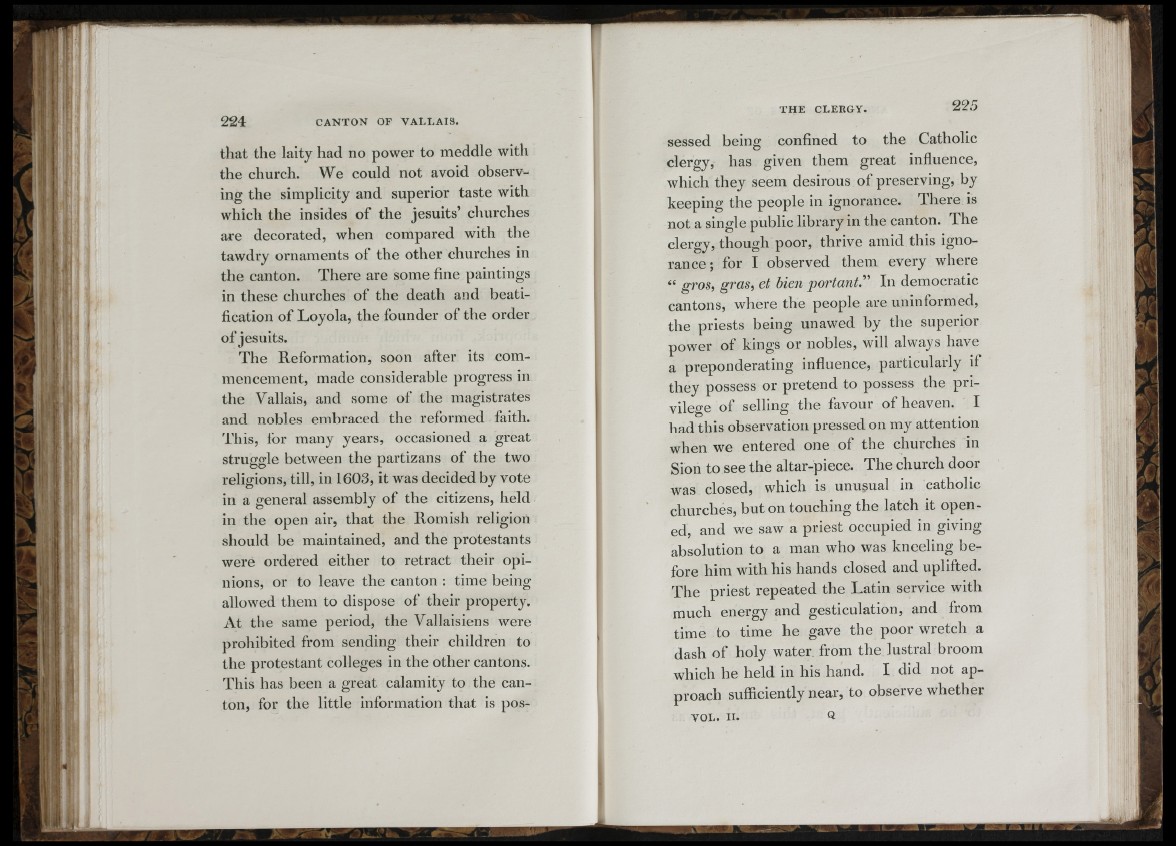
224 CANTON OF VALLAIS.
r
ê \
si
that the laity had no power to meddle with
the church. We could not avoid observing
the simplicity and superior taste with
which the insides of the Jesuits’ churches
are decorated, when compared with the
tawdry ornaments of the other churches in
the canton. There are some fine paintings
in these churches of the death and beatification
of Loyola, the founder of the order
o f jesuits.
The Reformation, soon after its commencement,
made considerable progress in
the Valíais, and some of the magistrates
and nobles embraced the reformed faith.
This, for many years, occasioned a great
struggle between the partizans of the two
religions, till, in 1603, it was decided by vote
in a general assembly of the citizens, held
in the open air, that the Romish religion
should be maintained, and the protestants
were ordered either to retract their opinions,
or to leave the canton ; time being-
allowed them to dispose of their property.
At the same period, the Vallaisiens were
prohibited from sending their children to
the protestant colleges in the other cantons.
This has been a great calamity to the canton,
for the little information that is posTHE
H
r*CLERGY. '225 i
sessed being confined to the Catholic
clergy, has given them great influence,
which they seem desirous of preserving, by
keeping the people in ignorance. There is
not a single public library in the canton. The
clergy, though poor, thrive amid this ignorance
; for I observed them every where
“ gros, gras, et hien portant." In democratic
cantons, where the people are uninformed,
the priests being unawed by the superior
power of kings or nobles, will always have
a preponderating influence, particularly if
they possess or pretend to possess the privilege
of selling the favour of heaven. I
had this observation pressed on my attention
when we entered one of the churches in
Sion to see the altar-piece. The church door
was closed, which is unusual in catholic
churches, but on touching the latch it opened,
and we saw a priest occupied in giving
absolution to a man who was kneeling before
him with his hands closed and uplifted.
The priest repeated the Latin service with
much energy and gesticulation, and from
time to time he gave the poor wretch a
dash of holy water from the lustral broom
which he held in his hand. I did not approach
sufficiently near, to observe whether
tl
VOL. II. Q